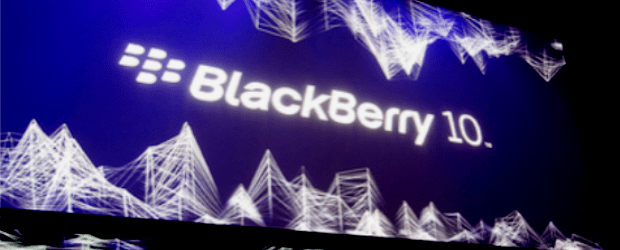Senior staff in IT companies often leave for new opportunities in this fluid industry, but the way they do it is always of interest.
Almost always the conditions of departure are governed by a contract, but sometimes it’s open to interpretation.
However, an Ontario judge found no room for dispute in the case of a BlackBerry official who tried to leave the company at the beginning of the year after a talk with new CEO John Chen about his future will have to wait until the end of June before taking up a new post at Apple.
Ontario Superior Court Justice Thomas McEwen ruled this week that Sebastien Marineau-Mes can’t leave the company until June 23 to fulfill the six months’ notice provision of the latest contract he signed.
Marineau-Mes argued in court that the contract he inked in October, which quietly promoted him to an executive vice-president, isn’t valid under the province’s Employment Standards Act in part because he didn’t assume his new duties; because the six months’ notice requirement is equivalent to a non-compete coventant; and that he had Good Reason to resign as allowed under the contract.
The judge rejected all those arguments and ruled flatly in favour of BlackBerry.
The case dates back to the fall of 2013 when Marineau-Mes, a long time employee of BlackBerry’s new QNX Software subsidiary, which developed the BB10 operating system, was offered a promotion. At the time he was senior vice-president of software, overseeing three vice-presidents and 600 staff.
But BlackBerry wanted to make him an executive vice-president, responsible for 11 vice-presidents and 3,000 staff. The offer was made Sept. 24, and he signed a contract in October. That contract included a provision that he could resign giving six months’ notice.
Because there was supposed to be a hiring freeze the promotion was only told to senior executives.
Several weeks later John Chen became BlackBerry’s new chief executive officer when, in the judge’s words the company “underwent some difficult times.” Marineau-Mes had a talk with Chen about his future “that were not satisfactory” to Marineau-Mes, the judge said. Among other things discussed was that his role might be narrower.
Unknown to BlackBerry, Marineau-Mes had been talking to Apple since September. In December it offered him the job of vice-president core OS, overseeing the development of software for the operating system. On Dec. 23 he gave BlackBerry notice, and the next day said he’d be joining Apple in two months.
In his decision the judge said that while Marineau-Mes stopped working for BlackBerry in the first week of January, it was reasonable for BlackBerry to require that he be available for possible work during the notice period. Given there’s a lawsuit it’s not surprising that Marineau-Mes hasn’t been called, the judge wrote. But, he noted, Marineau-Mes is still being paid by BlackBerry.
As for that talk with Chen, the judge said what was said didn’t constitute Good Reason for resigning, “particularly given the changes BB was experiencing” And, the judge added, the contract specifies that BlackBerry had the right to modify, change reduce or add to employment duties to meet business demands.
In any event, the contract said Marineau-Mes could only trigger termination for Good Reasons if he provided notice of the contract breach, and gave BlackBerry 15 says to make things right. He didn’t.
“I have found that BlackBerry had a legitimate interest in requiring Marineau-Mes’ services after his resignation,” the judge wrote. “I do not think that requiring Marineau-Mes to assist with his transition out of the company, rather than performing his usual duties as SVP, constitutes a material and detrimental alteration within the meaning of s. 4.5 of the contract.”
It isn’t known if the Apple job is still open.






So he signed a contact knowing it was “invalid”?